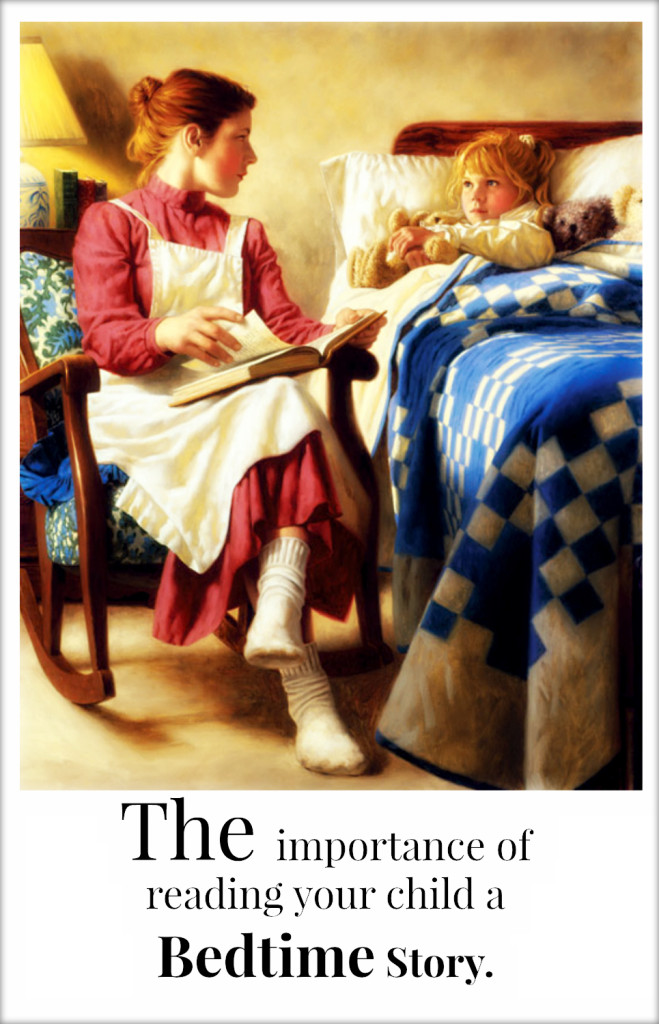Story in english to read
The Winepress - Short Story by Josef Essberger
A short story by Josef Essberger
"You don't have to be French to enjoy a decent red wine," Charles Jousselin de Gruse used to tell his foreign guests whenever he entertained them in Paris. "But you do have to be French to recognize one," he would add with a laugh.
After a lifetime in the French diplomatic corps, the Count de Gruse lived with his wife in an elegant townhouse on Quai Voltaire. He was a likeable man, cultivated of course, with a well-deserved reputation as a generous host and an amusing raconteur.
This evening's guests were all European and all equally convinced that immigration was at the root of Europe's problems. Charles de Gruse said nothing. He had always concealed his contempt for such ideas. And, in any case, he had never much cared for these particular guests.
The first of the red Bordeaux was being served with the veal, and one of the guests turned to de Gruse.
"Come on, Charles, it's simple arithmetic. Nothing to do with race or colour. You must've had bags of experience of this sort of thing. What d'you say?"
"Yes, General. Bags!"
Without another word, de Gruse picked up his glass and introduced his bulbous, winey nose. After a moment he looked up with watery eyes.
"A truly full-bodied Bordeaux," he said warmly, "a wine among wines."
The four guests held their glasses to the light and studied their blood-red contents. They all agreed that it was the best wine they had ever tasted.
One by one the little white lights along the Seine were coming on, and from the first-floor windows you could see the brightly lit bateaux-mouches passing through the arches of the Pont du Carrousel. The party moved on to a dish of game served with a more vigorous claret.
"Can you imagine," asked de Gruse, as the claret was poured, "that there are people who actually serve wines they know nothing about?"
"Really?" said one of the guests, a German politician.
"Personally, before I uncork a bottle I like to know what's in it."
"But how? How can anyone be sure?"
"I like to hunt around the vineyards. Take this place I used to visit in Bordeaux. I got to know the winegrower there personally. That's the way to know what you're drinking."
"A matter of pedigree, Charles," said the other politician.
"This fellow," continued de Gruse as though the Dutchman had not spoken, "always gave you the story behind his wines. One of them was the most extraordinary story I ever heard. We were tasting, in his winery, and we came to a cask that made him frown. He asked if I agreed with him that red Bordeaux was the best wine in the world. Of course, I agreed. Then he made the strangest statement.
"'The wine in this cask,' he said, and there were tears in his eyes, 'is the best vintage in the world. But it started its life far from the country where it was grown.'"
De Gruse paused to check that his guests were being served.
"Well?" said the Dutchman.
De Gruse and his wife exchanged glances.
"Do tell them, mon chéri," she said.
De Gruse leaned forwards, took another sip of wine, and dabbed his lips with the corner of his napkin. This is the story he told them.
At the age of twenty-one, Pierre - that was the name he gave the winegrower - had been sent by his father to spend some time with his uncle in Madagascar. Within two weeks he had fallen for a local girl called Faniry, or "Desire" in Malagasy. You could not blame him. At seventeen she was ravishing. In the Malagasy sunlight her skin was golden. Her black, waist-length hair, which hung straight beside her cheeks, framed large, fathomless eyes. It was a genuine coup de foudre, for both of them. Within five months they were married. Faniry had no family, but Pierre's parents came out from France for the wedding, even though they did not strictly approve of it, and for three years the young couple lived very happily on the island of Madagascar.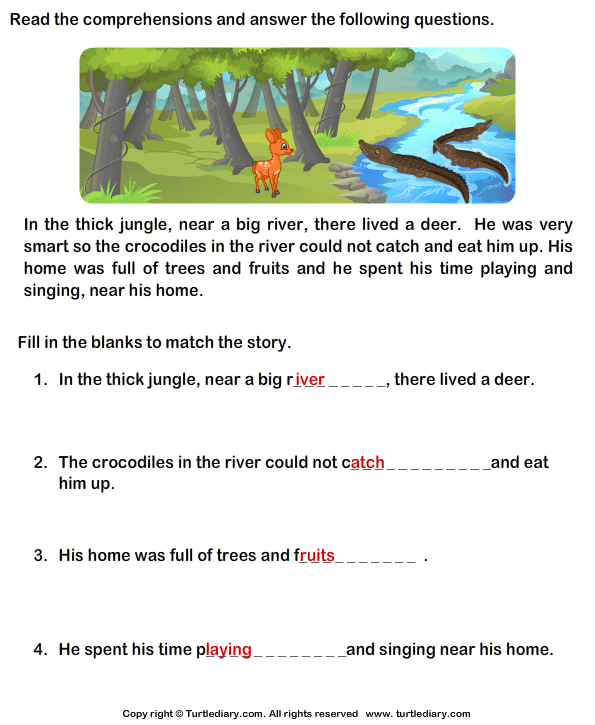 Then, one day, a telegram came from France. Pierre's parents and his only brother had been killed in a car crash. Pierre took the next flight home to attend the funeral and manage the vineyard left by his father.
Then, one day, a telegram came from France. Pierre's parents and his only brother had been killed in a car crash. Pierre took the next flight home to attend the funeral and manage the vineyard left by his father.
Faniry followed two weeks later. Pierre was grief-stricken, but with Faniry he settled down to running the vineyard. His family, and the lazy, idyllic days under a tropical sun, were gone forever. But he was very happily married, and he was very well-off. Perhaps, he reasoned, life in Bordeaux would not be so bad.
But he was wrong. It soon became obvious that Faniry was jealous. In Madagascar she had no match. In France she was jealous of everyone. Of the maids. Of the secretary. Even of the peasant girls who picked the grapes and giggled at her funny accent. She convinced herself that Pierre made love to each of them in turn.
She started with insinuations, simple, artless ones that Pierre hardly even recognized. Then she tried blunt accusation in the privacy of their bedroom. When he denied that, she resorted to violent, humiliating denouncements in the kitchens, the winery, the plantations. The angel that Pierre had married in Madagascar had become a termagant, blinded by jealousy. Nothing he did or said could help. Often, she would refuse to speak for a week or more, and when at last she spoke it would only be to scream yet more abuse or swear again her intention to leave him. By the third vine-harvest it was obvious to everyone that they loathed each other.
When he denied that, she resorted to violent, humiliating denouncements in the kitchens, the winery, the plantations. The angel that Pierre had married in Madagascar had become a termagant, blinded by jealousy. Nothing he did or said could help. Often, she would refuse to speak for a week or more, and when at last she spoke it would only be to scream yet more abuse or swear again her intention to leave him. By the third vine-harvest it was obvious to everyone that they loathed each other.
One Friday evening, Pierre was down in the winery, working on a new electric winepress. He was alone. The grape-pickers had left. Suddenly the door opened and Faniry entered, excessively made up. She walked straight up to Pierre, flung her arms around his neck, and pressed herself against him. Even above the fumes from the pressed grapes he could smell that she had been drinking.
"Darling," she sighed, "what shall we do?"
He badly wanted her, but all the past insults and humiliating scenes welled up inside him. He pushed her away.
He pushed her away.
"But, darling, I'm going to have a baby."
"Don't be absurd. Go to bed! You're drunk. And take that paint off. It makes you look like a tart."
Faniry's face blackened, and she threw herself at him with new accusations. He had never cared for her. He cared only about sex. He was obsessed with it. And with white women. But the women in France, the white women, they were the tarts, and he was welcome to them. She snatched a knife from the wall and lunged at him with it. She was in tears, but it took all his strength to keep the knife from his throat. Eventually he pushed her off, and she stumbled towards the winepress. Pierre stood, breathing heavily, as the screw of the press caught at her hair and dragged her in. She screamed, struggling to free herself. The screw bit slowly into her shoulder and she screamed again. Then she fainted, though whether from the pain or the fumes he was not sure. He looked away until a sickening sound told him it was over. Then he raised his arm and switched the current off.
Then he raised his arm and switched the current off.
The guests shuddered visibly and de Gruse paused in his story.
"Well, I won't go into the details at table," he said. "Pierre fed the rest of the body into the press and tidied up. Then he went up to the house, had a bath, ate a meal, and went to bed. The next day, he told everyone Faniry had finally left him and gone back to Madagascar. No-one was surprised."
He paused again. His guests sat motionless, their eyes turned towards him.
"Of course," he continued, "Sixty-five was a bad year for red Bordeaux. Except for Pierre's. That was the extraordinary thing. It won award after award, and nobody could understand why."
The general's wife cleared her throat.
"But, surely," she said, "you didn't taste it?"
"No, I didn't taste it, though Pierre did assure me his wife had lent the wine an incomparable aroma."
"And you didn't, er, buy any?" asked the general.
"How could I refuse? It isn't every day that one finds such a pedigree. "
"
There was a long silence. The Dutchman shifted awkwardly in his seat, his glass poised midway between the table and his open lips. The other guests looked around uneasily at each other. They did not understand.
"But look here, Gruse," said the general at last, "you don't mean to tell me we're drinking this damned woman now, d'you?"
De Gruse gazed impassively at the Englishman.
"Heaven forbid, General," he said slowly. "Everyone knows that the best vintage should always come first."
- Your Comments
The Black Cat by Edgar Allan Poe | Reading
A short story by Edgar Allan Poe
Wordchecker (vocabulary in context)
For the most wild, yet most homely narrative which I am about to pen, I neither expect nor solicit belief. Mad indeed would I be to expect it, in a case where my very senses reject their own evidence. Yet, mad am I not - and very surely do I not dream. But to-morrow I die, and to-day I would unburthen my soul. My immediate purpose is to place before the world, plainly, succinctly, and without comment, a series of mere household events. In their consequences, these events have terrified - have tortured - have destroyed me. Yet I will not attempt to expound them. To me, they have presented little but Horror - to many they will seem less terrible than barroques. Hereafter, perhaps, some intellect may be found which will reduce my phantasm to the common-place - some intellect more calm, more logical, and far less excitable than my own, which will perceive, in the circumstances I detail with awe, nothing more than an ordinary succession of very natural causes and effects.
My immediate purpose is to place before the world, plainly, succinctly, and without comment, a series of mere household events. In their consequences, these events have terrified - have tortured - have destroyed me. Yet I will not attempt to expound them. To me, they have presented little but Horror - to many they will seem less terrible than barroques. Hereafter, perhaps, some intellect may be found which will reduce my phantasm to the common-place - some intellect more calm, more logical, and far less excitable than my own, which will perceive, in the circumstances I detail with awe, nothing more than an ordinary succession of very natural causes and effects.
From my infancy I was noted for the docility and humanity of my disposition. My tenderness of heart was even so conspicuous as to make me the jest of my companions. I was especially fond of animals, and was indulged by my parents with a great variety of pets. With these I spent most of my time, and never was so happy as when feeding and caressing them.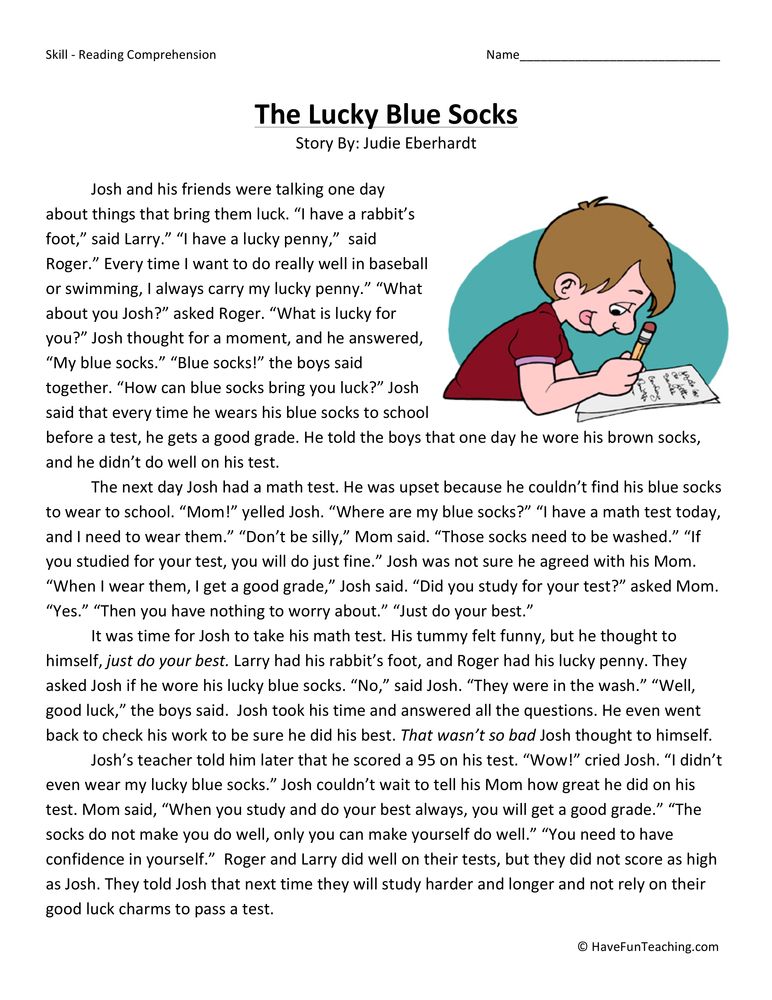 This peculiarity of character grew with my growth, and in my manhood, I derived from it one of my principal sources of pleasure. To those who have cherished an affection for a faithful and sagacious dog, I need hardly be at the trouble of explaining the nature or the intensity of the gratification thus derivable. There is something in the unselfish and self-sacrificing love of a brute, which goes directly to the heart of him who has had frequent occasion to test the paltry friendship and gossamer fidelity of mere Man.
This peculiarity of character grew with my growth, and in my manhood, I derived from it one of my principal sources of pleasure. To those who have cherished an affection for a faithful and sagacious dog, I need hardly be at the trouble of explaining the nature or the intensity of the gratification thus derivable. There is something in the unselfish and self-sacrificing love of a brute, which goes directly to the heart of him who has had frequent occasion to test the paltry friendship and gossamer fidelity of mere Man.
I married early, and was happy to find in my wife a disposition not uncongenial with my own. Observing my partiality for domestic pets, she lost no opportunity of procuring those of the most agreeable kind. We had birds, gold-fish, a fine dog, rabbits, a small monkey, and a cat.
This latter was a remarkably large and beautiful animal, entirely black, and sagacious to an astonishing degree. In speaking of his intelligence, my wife, who at heart was not a little tinctured with superstition, made frequent allusion to the ancient popular notion, which regarded all black cats as witches in disguise. Not that she was ever serious upon this point - and I mention the matter at all for no better reason than that it happens, just now, to be remembered.
Not that she was ever serious upon this point - and I mention the matter at all for no better reason than that it happens, just now, to be remembered.
Pluto - this was the cat's name - was my favorite pet and playmate. I alone fed him, and he attended me wherever I went about the house. It was even with difficulty that I could prevent him from following me through the streets.
Our friendship lasted, in this manner, for several years, during which my general temperament and character - through the instrumentality of the Fiend Intemperance - had (I blush to confess it) experienced a radical alteration for the worse. I grew, day by day, more moody, more irritable, more regardless of the feelings of others. I suffered myself to use intemperate language to my wife. At length, I even offered her personal violence. My pets, of course, were made to feel the change in my disposition. I not only neglected, but ill-used them. For Pluto, however, I still retained sufficient regard to restrain me from maltreating him, as I made no scruple of maltreating the rabbits, the monkey, or even the dog, when by accident, or through affection, they came in my way. But my disease grew upon me - for what disease is like Alcohol! - and at length even Pluto, who was now becoming old, and consequently somewhat peevish - even Pluto began to experience the effects of my ill temper.
But my disease grew upon me - for what disease is like Alcohol! - and at length even Pluto, who was now becoming old, and consequently somewhat peevish - even Pluto began to experience the effects of my ill temper.
One night, returning home, much intoxicated, from one of my haunts about town, I fancied that the cat avoided my presence. I seized him; when, in his fright at my violence, he inflicted a slight wound upon my hand with his teeth. The fury of a demon instantly possessed me. I knew myself no longer. My original soul seemed, at once, to take its flight from my body and a more than fiendish malevolence, gin-nurtured, thrilled every fibre of my frame. I took from my waistcoat-pocket a pen-knife, opened it, grasped the poor beast by the throat, and deliberately cut one of its eyes from the socket! I blush, I burn, I shudder, while I pen the damnable atrocity.
When reason returned with the morning - when I had slept off the fumes of the night's debauch - I experienced a sentiment half of horror, half of remorse, for the crime of which I had been guilty; but it was, at best, a feeble and equivocal feeling, and the soul remained untouched. I again plunged into excess, and soon drowned in wine all memory of the deed.
I again plunged into excess, and soon drowned in wine all memory of the deed.
In the meantime the cat slowly recovered. The socket of the lost eye presented, it is true, a frightful appearance, but he no longer appeared to suffer any pain. He went about the house as usual, but, as might be expected, fled in extreme terror at my approach. I had so much of my old heart left, as to be at first grieved by this evident dislike on the part of a creature which had once so loved me. But this feeling soon gave place to irritation. And then came, as if to my final and irrevocable overthrow, the spirit of PERVERSENESS. Of this spirit philosophy takes no account. Yet I am not more sure that my soul lives, than I am that perverseness is one of the primitive impulses of the human heart - one of the indivisible primary faculties, or sentiments, which give direction to the character of Man. Who has not, a hundred times, found himself committing a vile or a silly action, for no other reason than because he knows he should not? Have we not a perpetual inclination, in the teeth of our best judgment, to violate that which is Law, merely because we understand it to be such? This spirit of perverseness, I say, came to my final overthrow. It was this unfathomable longing of the soul to vex itself - to offer violence to its own nature - to do wrong for the wrong's sake only - that urged me to continue and finally to consummate the injury I had inflicted upon the unoffending brute. One morning, in cool blood, I slipped a noose about its neck and hung it to the limb of a tree; - hung it with the tears streaming from my eyes, and with the bitterest remorse at my heart; - hung it because I knew that it had loved me, and because I felt it had given me no reason of offence; - hung it because I knew that in so doing I was committing a sin - a deadly sin that would so jeopardize my immortal soul as to place it - if such a thing wore possible - even beyond the reach of the infinite mercy of the Most Merciful and Most Terrible God.
It was this unfathomable longing of the soul to vex itself - to offer violence to its own nature - to do wrong for the wrong's sake only - that urged me to continue and finally to consummate the injury I had inflicted upon the unoffending brute. One morning, in cool blood, I slipped a noose about its neck and hung it to the limb of a tree; - hung it with the tears streaming from my eyes, and with the bitterest remorse at my heart; - hung it because I knew that it had loved me, and because I felt it had given me no reason of offence; - hung it because I knew that in so doing I was committing a sin - a deadly sin that would so jeopardize my immortal soul as to place it - if such a thing wore possible - even beyond the reach of the infinite mercy of the Most Merciful and Most Terrible God.
On the night of the day on which this cruel deed was done, I was aroused from sleep by the cry of fire. The curtains of my bed were in flames. The whole house was blazing.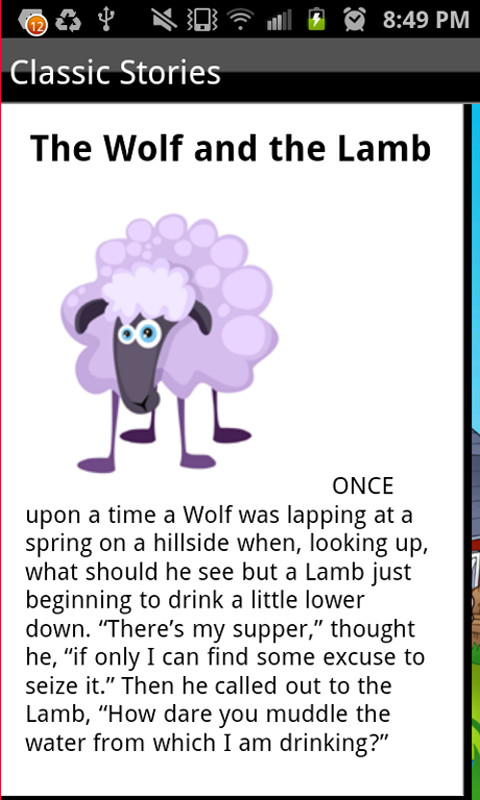 It was with great difficulty that my wife, a servant, and myself, made our escape from the conflagration. The destruction was complete. My entire worldly wealth was swallowed up, and I resigned myself thenceforward to despair.
It was with great difficulty that my wife, a servant, and myself, made our escape from the conflagration. The destruction was complete. My entire worldly wealth was swallowed up, and I resigned myself thenceforward to despair.
I am above the weakness of seeking to establish a sequence of cause and effect, between the disaster and the atrocity. But I am detailing a chain of facts - and wish not to leave even a possible link imperfect. On the day succeeding the fire, I visited the ruins. The walls, with one exception, had fallen in. This exception was found in a compartment wall, not very thick, which stood about the middle of the house, and against which had rested the head of my bed. The plastering had here, in great measure, resisted the action of the fire - a fact which I attributed to its having been recently spread. About this wall a dense crowd were collected, and many persons seemed to be examining a particular portion of it with very minute and eager attention. The words "strange!" "singular!" and other similar expressions, excited my curiosity. I approached and saw, as if graven in bas relief upon the white surface, the figure of a gigantic cat. The impression was given with an accuracy truly marvellous. There was a rope about the animal's neck.
I approached and saw, as if graven in bas relief upon the white surface, the figure of a gigantic cat. The impression was given with an accuracy truly marvellous. There was a rope about the animal's neck.
When I first beheld this apparition - for I could scarcely regard it as less - my wonder and my terror were extreme. But at length reflection came to my aid. The cat, I remembered, had been hung in a garden adjacent to the house. Upon the alarm of fire, this garden had been immediately filled by the crowd - by some one of whom the animal must have been cut from the tree and thrown, through an open window, into my chamber. This had probably been done with the view of arousing me from sleep. The falling of other walls had compressed the victim of my cruelty into the substance of the freshly-spread plaster; the lime of which, with the flames, and the ammonia from the carcass, had then accomplished the portraiture as I saw it.
Although I thus readily accounted to my reason, if not altogether to my conscience, for the startling fact just detailed, it did not the less fail to make a deep impression upon my fancy. For months I could not rid myself of the phantasm of the cat; and, during this period, there came back into my spirit a half-sentiment that seemed, but was not, remorse. I went so far as to regret the loss of the animal, and to look about me, among the vile haunts which I now habitually frequented, for another pet of the same species, and of somewhat similar appearance, with which to supply its place.
For months I could not rid myself of the phantasm of the cat; and, during this period, there came back into my spirit a half-sentiment that seemed, but was not, remorse. I went so far as to regret the loss of the animal, and to look about me, among the vile haunts which I now habitually frequented, for another pet of the same species, and of somewhat similar appearance, with which to supply its place.
One night as I sat, half stupified, in a den of more than infamy, my attention was suddenly drawn to some black object, reposing upon the head of one of the immense hogsheads of Gin, or of Rum, which constituted the chief furniture of the apartment. I had been looking steadily at the top of this hogshead for some minutes, and what now caused me surprise was the fact that I had not sooner perceived the object thereupon. I approached it, and touched it with my hand. It was a black cat - a very large one - fully as large as Pluto, and closely resembling him in every respect but one. Pluto had not a white hair upon any portion of his body; but this cat had a large, although indefinite splotch of white, covering nearly the whole region of the breast.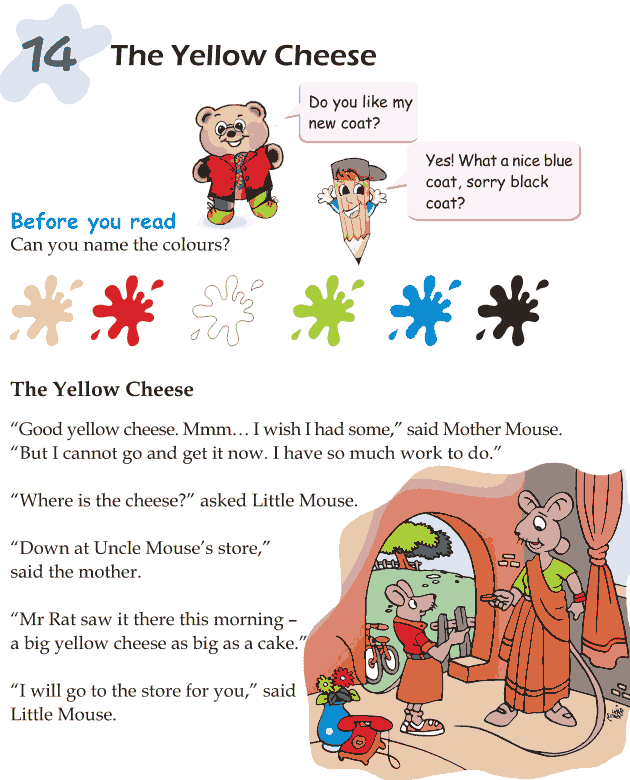 Upon my touching him, he immediately arose, purred loudly, rubbed against my hand, and appeared delighted with my notice. This, then, was the very creature of which I was in search. I at once offered to purchase it of the landlord; but this person made no claim to it - knew nothing of it - had never seen it before.
Upon my touching him, he immediately arose, purred loudly, rubbed against my hand, and appeared delighted with my notice. This, then, was the very creature of which I was in search. I at once offered to purchase it of the landlord; but this person made no claim to it - knew nothing of it - had never seen it before.
I continued my caresses, and, when I prepared to go home, the animal evinced a disposition to accompany me. I permitted it to do so; occasionally stooping and patting it as I proceeded. When it reached the house it domesticated itself at once, and became immediately a great favorite with my wife.
For my own part, I soon found a dislike to it arising within me. This was just the reverse of what I had anticipated; but - I know not how or why it was - its evident fondness for myself rather disgusted and annoyed. By slow degrees, these feelings of disgust and annoyance rose into the bitterness of hatred. I avoided the creature; a certain sense of shame, and the remembrance of my former deed of cruelty, preventing me from physically abusing it. I did not, for some weeks, strike, or otherwise violently ill use it; but gradually - very gradually - I came to look upon it with unutterable loathing, and to flee silently from its odious presence, as from the breath of a pestilence.
I did not, for some weeks, strike, or otherwise violently ill use it; but gradually - very gradually - I came to look upon it with unutterable loathing, and to flee silently from its odious presence, as from the breath of a pestilence.
What added, no doubt, to my hatred of the beast, was the discovery, on the morning after I brought it home, that, like Pluto, it also had been deprived of one of its eyes. This circumstance, however, only endeared it to my wife, who, as I have already said, possessed, in a high degree, that humanity of feeling which had once been my distinguishing trait, and the source of many of my simplest and purest pleasures.
With my aversion to this cat, however, its partiality for myself seemed to increase. It followed my footsteps with a pertinacity which it would be difficult to make the reader comprehend. Whenever I sat, it would crouch beneath my chair, or spring upon my knees, covering me with its loathsome caresses. If I arose to walk it would get between my feet and thus nearly throw me down, or, fastening its long and sharp claws in my dress, clamber, in this manner, to my breast. At such times, although I longed to destroy it with a blow, I was yet withheld from so doing, partly by a memory of my former crime, but chiefly - let me confess it at once - by absolute dread of the beast.
At such times, although I longed to destroy it with a blow, I was yet withheld from so doing, partly by a memory of my former crime, but chiefly - let me confess it at once - by absolute dread of the beast.
This dread was not exactly a dread of physical evil - and yet I should be at a loss how otherwise to define it. I am almost ashamed to own - yes, even in this felon's cell, I am almost ashamed to own - that the terror and horror with which the animal inspired me, had been heightened by one of the merest chimaeras it would be possible to conceive. My wife had called my attention, more than once, to the character of the mark of white hair, of which I have spoken, and which constituted the sole visible difference between the strange beast and the one I had destroyed. The reader will remember that this mark, although large, had been originally very indefinite; but, by slow degrees - degrees nearly imperceptible, and which for a long time my Reason struggled to reject as fanciful - it had, at length, assumed a rigorous distinctness of outline. It was now the representation of an object that I shudder to name - and for this, above all, I loathed, and dreaded, and would have rid myself of the monster had I dared - it was now, I say, the image of a hideous - of a ghastly thing - of the GALLOWS! - oh, mournful and terrible engine of Horror and of Crime - of Agony and of Death!
It was now the representation of an object that I shudder to name - and for this, above all, I loathed, and dreaded, and would have rid myself of the monster had I dared - it was now, I say, the image of a hideous - of a ghastly thing - of the GALLOWS! - oh, mournful and terrible engine of Horror and of Crime - of Agony and of Death!
And now was I indeed wretched beyond the wretchedness of mere Humanity. And a brute beast - whose fellow I had contemptuously destroyed - a brute beast to work out for me - for me a man, fashioned in the image of the High God - so much of insufferable wo! Alas! neither by day nor by night knew I the blessing of Rest any more! During the former the creature left me no moment alone; and, in the latter, I started, hourly, from dreams of unutterable fear, to find the hot breath of the thing upon my face, and its vast weight - an incarnate Night-Mare that I had no power to shake off - incumbent eternally upon my heart!
Beneath the pressure of torments such as these, the feeble remnant of the good within me succumbed.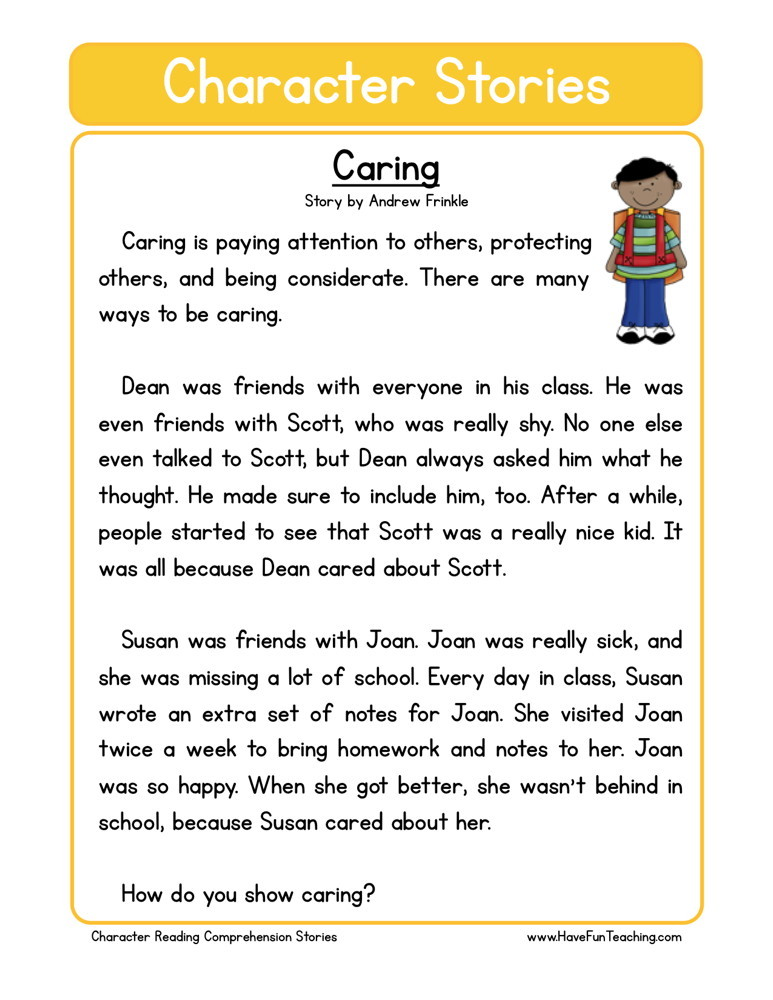 Evil thoughts became my sole intimates - the darkest and most evil of thoughts. The moodiness of my usual temper increased to hatred of all things and of all mankind; while, from the sudden, frequent, and ungovernable outbursts of a fury to which I now blindly abandoned myself, my uncomplaining wife, alas! was the most usual and the most patient of sufferers.
Evil thoughts became my sole intimates - the darkest and most evil of thoughts. The moodiness of my usual temper increased to hatred of all things and of all mankind; while, from the sudden, frequent, and ungovernable outbursts of a fury to which I now blindly abandoned myself, my uncomplaining wife, alas! was the most usual and the most patient of sufferers.
One day she accompanied me, upon some household errand, into the cellar of the old building which our poverty compelled us to inhabit. The cat followed me down the steep stairs, and, nearly throwing me headlong, exasperated me to madness. Uplifting an axe, and forgetting, in my wrath, the childish dread which had hitherto stayed my hand, I aimed a blow at the animal which, of course, would have proved instantly fatal had it descended as I wished. But this blow was arrested by the hand of my wife. Goaded, by the interference, into a rage more than demoniacal, I withdrew my arm from her grasp and buried the axe in her brain. She fell dead upon the spot, without a groan.
This hideous murder accomplished, I set myself forthwith, and with entire deliberation, to the task of concealing the body. I knew that I could not remove it from the house, either by day or by night, without the risk of being observed by the neighbors. Many projects entered my mind. At one period I thought of cutting the corpse into minute fragments, and destroying them by fire. At another, I resolved to dig a grave for it in the floor of the cellar. Again, I deliberated about casting it in the well in the yard - about packing it in a box, as if merchandize, with the usual arrangements, and so getting a porter to take it from the house. Finally I hit upon what I considered a far better expedient than either of these. I determined to wall it up in the cellar - as the monks of the middle ages are recorded to have walled up their victims.
For a purpose such as this the cellar was well adapted. Its walls were loosely constructed, and had lately been plastered throughout with a rough plaster, which the dampness of the atmosphere had prevented from hardening. Moreover, in one of the walls was a projection, caused by a false chimney, or fireplace, that had been filled up, and made to resemble the red of the cellar. I made no doubt that I could readily displace the bricks at this point, insert the corpse, and wall the whole up as before, so that no eye could detect any thing suspicious. And in this calculation I was not deceived. By means of a crow-bar I easily dislodged the bricks, and, having carefully deposited the body against the inner wall, I propped it in that position, while, with little trouble, I re-laid the whole structure as it originally stood. Having procured mortar, sand, and hair, with every possible precaution, I prepared a plaster which could not be distinguished from the old, and with this I very carefully went over the new brickwork. When I had finished, I felt satisfied that all was right. The wall did not present the slightest appearance of having been disturbed. The rubbish on the floor was picked up with the minutest care.
Moreover, in one of the walls was a projection, caused by a false chimney, or fireplace, that had been filled up, and made to resemble the red of the cellar. I made no doubt that I could readily displace the bricks at this point, insert the corpse, and wall the whole up as before, so that no eye could detect any thing suspicious. And in this calculation I was not deceived. By means of a crow-bar I easily dislodged the bricks, and, having carefully deposited the body against the inner wall, I propped it in that position, while, with little trouble, I re-laid the whole structure as it originally stood. Having procured mortar, sand, and hair, with every possible precaution, I prepared a plaster which could not be distinguished from the old, and with this I very carefully went over the new brickwork. When I had finished, I felt satisfied that all was right. The wall did not present the slightest appearance of having been disturbed. The rubbish on the floor was picked up with the minutest care.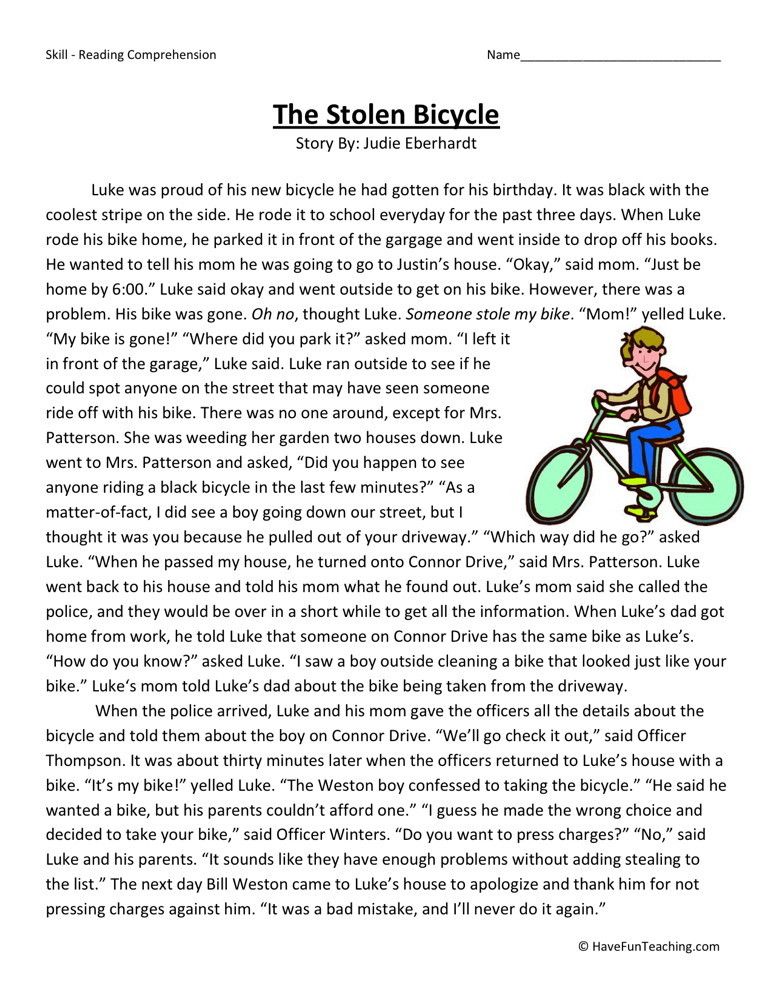 I looked around triumphantly, and said to myself - "Here at least, then, my labor has not been in vain."
I looked around triumphantly, and said to myself - "Here at least, then, my labor has not been in vain."
My next step was to look for the beast which had been the cause of so much wretchedness; for I had, at length, firmly resolved to put it to death. Had I been able to meet with it, at the moment, there could have been no doubt of its fate; but it appeared that the crafty animal had been alarmed at the violence of my previous anger, and forebore to present itself in my present mood. It is impossible to describe, or to imagine, the deep, the blissful sense of relief which the absence of the detested creature occasioned in my bosom. It did not make its appearance during the night - and thus for one night at least, since its introduction into the house, I soundly and tranquilly slept; aye, slept even with the burden of murder upon my soul!
The second and the third day passed, and still my tormentor came not. Once again I breathed as a freeman. The monster, in terror, had fled the premises forever! I should behold it no more! My happiness was supreme! The guilt of my dark deed disturbed me but little.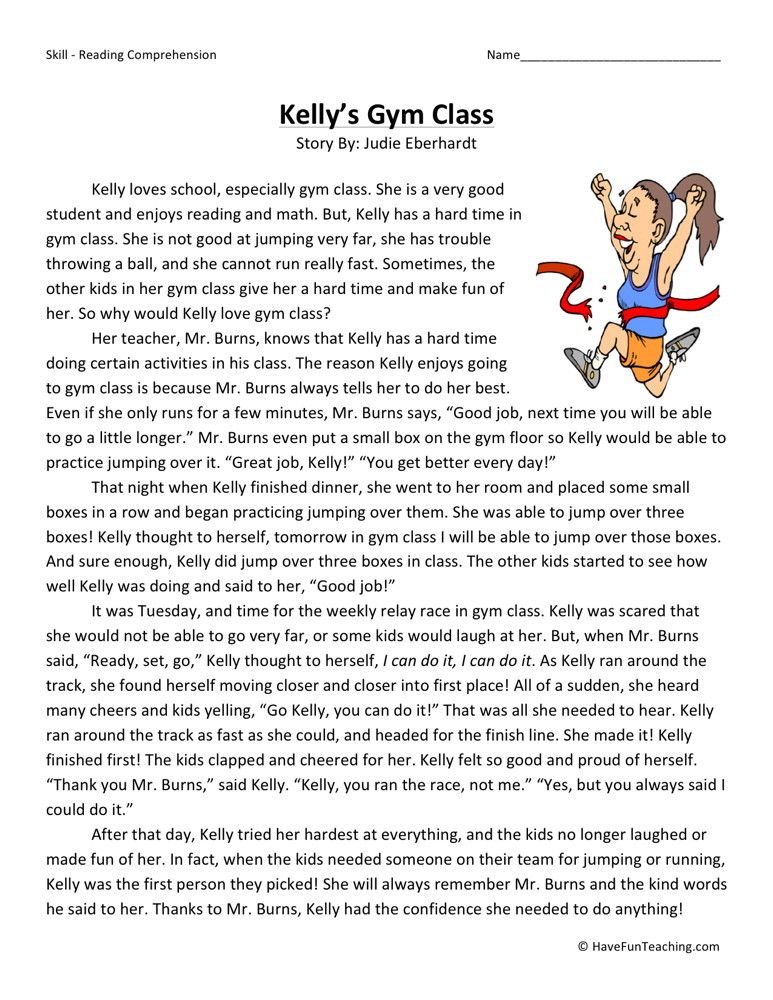 Some few inquiries had been made, but these had been readily answered. Even a search had been instituted - but of course nothing was to be discovered. I looked upon my future felicity as secured.
Some few inquiries had been made, but these had been readily answered. Even a search had been instituted - but of course nothing was to be discovered. I looked upon my future felicity as secured.
Upon the fourth day of the assassination, a party of the police came, very unexpectedly, into the house, and proceeded again to make rigorous investigation of the premises. Secure, however, in the inscrutability of my place of concealment, I felt no embarrassment whatever. The officers bade me accompany them in their search. They left no nook or corner unexplored. At length, for the third or fourth time, they descended into the cellar. I quivered not in a muscle. My heart beat calmly as that of one who slumbers in innocence. I walked the cellar from end to end. I folded my arms upon my bosom, and roamed easily to and fro. The police were thoroughly satisfied and prepared to depart. The glee at my heart was too strong to be restrained. I burned to say if but one word, by way of triumph, and to render doubly sure their assurance of my guiltlessness.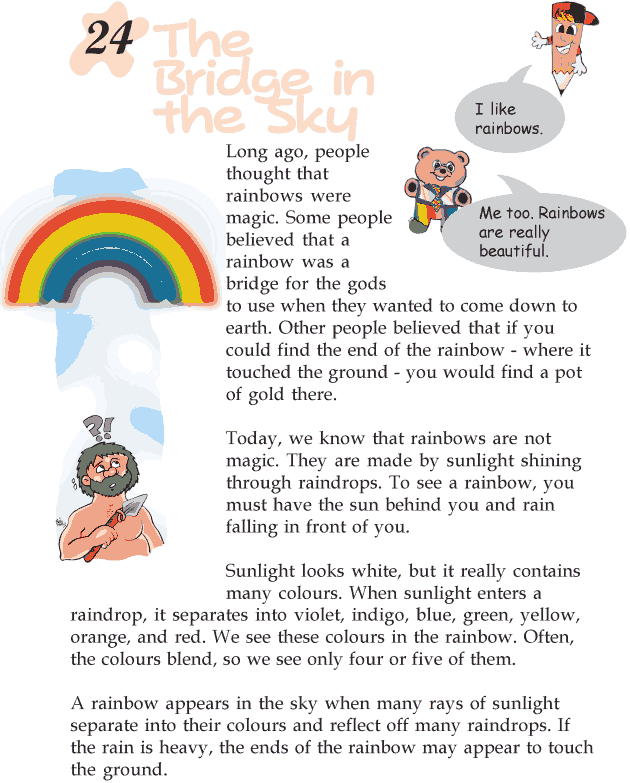
"Gentlemen," I said at last, as the party ascended the steps, "I delight to have allayed your suspicions. I wish you all health, and a little more courtesy. By the bye, gentlemen, this - this is a very well constructed house." [In the rabid desire to say something easily, I scarcely knew what I uttered at all.] - "I may say an excellently well constructed house. These walls are you going, gentlemen? - these walls are solidly put together;" and here, through the mere phrenzy of bravado, I rapped heavily, with a cane which I held in my hand, upon that very portion of the brick-work behind which stood the corpse of the wife of my bosom.
But may God shield and deliver me from the fangs of the Arch-Fiend! No sooner had the reverberation of my blows sunk into silence, than I was answered by a voice from within the tomb! - by a cry, at first muffled and broken, like the sobbing of a child, and then quickly swelling into one long, loud, and continuous scream, utterly anomalous and inhuman - a howl - a wailing shriek, half of horror and half of triumph, such as might have arisen only out of hell, conjointly from the throats of the dammed in their agony and of the demons that exult in the damnation.
Of my own thoughts it is folly to speak. Swooning, I staggered to the opposite wall. For one instant the party upon the stairs remained motionless, through extremity of terror and of awe. In the next, a dozen stout arms were toiling at the wall. It fell bodily. The corpse, already greatly decayed and clotted with gore, stood erect before the eyes of the spectators. Upon its head, with red extended mouth and solitary eye of fire, sat the hideous beast whose craft had seduced me into murder, and whose informing voice had consigned me to the hangman. I had walled the monster up within the tomb!
Edgar Allan Poe
homely (adjective): plain
solicit (verb): to try to get; to request
unburthen (verb): to offer freedom or relief from something
succinctly (adverb): without too much detail
expound (verb): to explain
barroques (noun - French): fanciful adventure novels
desolate (adjective): deserted; very alone
phantasm (noun): illusion
docility (noun): strong ability to learn or take direction
conspicuous (adjective): very noticeable
indulged (adjective): treated with something that brings pleasure
sagacious (adjective): having good judgement
derivable (adjective): able to receive from a source
paltry (adjective): very small; almost non-existent
gossamer (adjective): delicate
fidelity (noun): faithfulness
Fiend Intemperance (noun): alcoholism
intemperance (noun): inability to refrain from drinking
blush (verb): to turn red in the face due to embarrassment
scruple (noun): doubt
peevish (adjective): irritable; cranky
malevolence (noun): hatred
atrocity (noun): a terrible occurrence
debauch (noun): the act of becoming drunk
equivocal (adjective): uncertain
irrevocable (adjective): unable to be changed
perverseness (noun): stubbornness
unfathomable (adjective): unthinkable
vex (verb): to annoy
conflagration (noun): a major fire
graven (adjective): carved
bas relief (noun): a type of sculpture
apparition (noun): ghost
adjacent (adjective): next to something
carcass (noun): dead body of an animal
stupefied (adjective): shocked
evince (verb): to reveal
domesticate (verb): to become part of the home
odious (adjective): very unpleasant
pestilence (noun): an infectious disease that causes death
aversion (noun): dislike
partiality (adjective): fondness for someone or something specific
loathsome (adjective): causing disgust
gallows (noun): execution by hanging
contemptuously (adverb): with a feeling of hatred
incumbent (adjective): resting on
succumb (verb): to surrender to
goad (verb): provoke or annoy someone into some action
tranquilly (adverb): peacefully
felicity (noun): happiness
inscrutability (noun): mysteriousness
allay (verb): to diminish
anomalous (adjective): abnormal; non-standard; not expected
Short stories to help language learners
Fiction is very helpful in developing language skills, and when we read stories in English, we effectively improve our level and have an interesting time.
Books in English
Books play a big role in language learning. When reading literature, we learn new words, assimilate constructions. Of course, no one canceled the importance of oral language practice, but in a conversation we only hone what we received earlier, we translate theory into practice. In a conversation, we do not have time to work out the vocabulary, and when reading, we have the opportunity to refer to the dictionary, understand everything and, if necessary, re-read the incomprehensible.
Literature develops good taste and gives us an idea of the correct language. In addition, through books in English, you are immersed in a foreign language culture, you begin to better understand native speakers.
At the initial stage, when the vocabulary is very small, it is very helpful to parse the vocabulary of special stories in English for beginners. They are also called adapted. In such books, information is divided into certain topics, and dictionaries of words used in the text are attached. Adapted texts are simplified in terms of vocabulary and sentence construction, and can be read by those who have recently started learning. But what is lost in them is what unadapted literature gives - the language of native speakers, which does not adapt to the level of knowledge of foreigners.
They are also called adapted. In such books, information is divided into certain topics, and dictionaries of words used in the text are attached. Adapted texts are simplified in terms of vocabulary and sentence construction, and can be read by those who have recently started learning. But what is lost in them is what unadapted literature gives - the language of native speakers, which does not adapt to the level of knowledge of foreigners.
Why short stories are good
Of course, reading literature is important for everyone who learns a language. But what? It is not worth taking on huge novels right away: such a path will not be effective, and it may discourage the desire to read English literature in the original - not everyone can handle such ambitious goals.
It is very useful to read stories in English. Short stories are a stepping stone from reading adapted educational texts to larger works of fiction.
The language in small texts is more concise, since it is necessary to fit all the events into a small volume of the work. Details play a big role in the stories, they allow you to succinctly describe the situation. For language learners, such bright strokes that are significant for the plot are much easier to remember, which means it is easier to learn the words corresponding to them.
When parsing stories, it is convenient to memorize grammar and words. You always have the opportunity to reread the text again after you have analyzed the translation of words and sentence constructions. After all, reading a story does not take much time, and when you read it again, new phrases will be deposited in your memory much better.
Reading interesting stories in English, we immediately see our progress. After all, each text here is a finished work, which serves as a stepping stone in mastering English. After reading a story, we learn vocabulary on a certain topic, after which we can move on to another topic and thus quickly improve our language.
After reading a story, we learn vocabulary on a certain topic, after which we can move on to another topic and thus quickly improve our language.
How to work with texts
You need to know not only what to read, but also how to read English stories for beginners more effectively in order to get the maximum benefit and assimilate all the material:
- Read the text without translation. No need to immediately translate every word in a dictionary. In the beginning, we just get acquainted with the text, and our task is to understand what the story is about. You can guess the meaning of many words from the context.
- You can now translate unfamiliar words. When you understand the essence of the story, then you already have guesses - this way the new vocabulary will be remembered much better. In addition, it will be easier for you to navigate the necessary meanings of ambiguous words.

- Pay attention to the construction of sentences, the choice of grammatical tenses. Reading unadapted texts is a good test of your understanding of why certain grammatical forms are put. Look also at the stylistic features, note in what situations the expressions from the story may be appropriate.
- Starting from the story, reflect on what you have read. Think about why the characters act the way they do and why the author has framed the story the way they do. Interesting stories in English will give a good impetus to formulating your opinion on certain topics, which is extremely important for language practice.
- Retell the story. Try to use the words and structures you have learned from the text to learn how to apply what you have learned. Short stories are very convenient for retelling: you can quickly read the work and immediately get the finished story.
Which text to choose
We have already talked about the effectiveness of reading stories. But in this genre there are works of very different complexity, and you need to choose the text in accordance with your level of knowledge of the language.
But in this genre there are works of very different complexity, and you need to choose the text in accordance with your level of knowledge of the language.
Assess your strength. Choose a text that has a moderate amount of new words. If you have been studying the language for a long time, then easy stories in English for beginners will simply be useless for you: you will not learn anything new. If the entire text consists of unfamiliar words for you, then you have overestimated your capabilities. In this case, it is better to choose a simpler material.
When the text is not full of unfamiliar vocabulary, it is much easier to learn it. You can guess the meanings from the context, which is the easiest way to remember new words and expressions. In addition, you will have the opportunity to pay attention to the construction of sentences and the use of grammatical indicators. And you will get much more pleasure from reading, because the constant looking into the dictionary will prevent you from enjoying literature.
If you are new to learning a language, pick up stories in English for beginners with translation, fairy tales or children's stories. Works for children are simpler, while you can learn a lot of useful things for yourself. When you feel confident, move on to more complex literature.
Stories in English can be found from a variety of writers. There is always an opportunity to choose which of the authors is closer to you: O. Henry, Conan Doyle, Edgar Allan Poe, Jack London, Ray Bradbury, Rudyard Kipling, Mark Twain, Charles Dickens, Kurt Vonnegut.
Stories for Beginners
To give you an idea of the texts, we will use as an example Mark Twain's story-parable "The Five Boons Of Life". The story is short, consisting of five short passages. The first snippet looks like this:
In the morning of life came a good fairy with her basket, and said: “Here are gifts. Take one, leave the others. And be wary, chose wisely; oh, choose wisely! for only one of them is valuable”.
Take one, leave the others. And be wary, chose wisely; oh, choose wisely! for only one of them is valuable”.
The gifts were five: Fame, Love, Riches, Pleasure, Death.
The youth said, eagerly: “There is no need to consider”; and he chose Pleasure.
He went out into the world and sought out the pleasures that youth delights in. But each in its turn was short-lived and disappointing, vain and empty; and each, departing, mocked him.
In the end he said: “These years I have wasted. If I could but choose again, I would choose wisely.”
Russian translation:
At the dawn of life, a fairy came to a man with a basket in her hands and said: “Here are the gifts. Take one, leave the others. Be careful, choose wisely, very wisely! Only one of them is truly valuable."
There were five gifts: Glory, Love, Wealth, Pleasure, Death.
The young man answered with passion: "There is nothing to think about" - and chose Pleasure.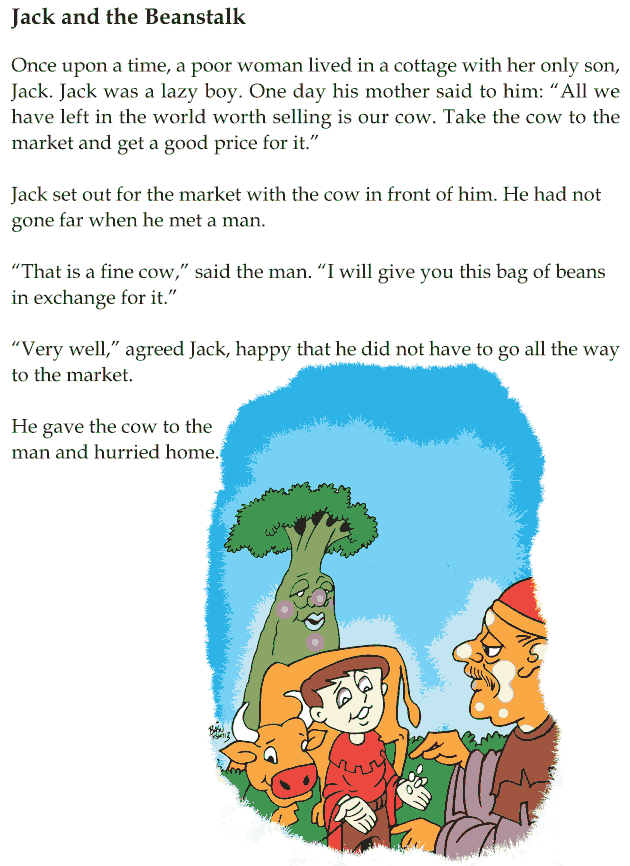
He went out into the world and sought those pleasures that delight youth. But each turned out to be short-lived and brought disappointments, vanity and emptiness, each left him with ridicule.
In the end, the man said, “I wasted these years. If I could choose again, I would be wiser.”
Let's not give the whole English story, but let's analyze its ending: the young man tried all the gifts except death, and every time he was disappointed. Then he again appeared before the fairy:
The fairy came, bringing again four of the gifts, but Death was wanting.
She said: “I gave it to a mother's pet, a little child. It was ignorant, but trusted me, asking me to choose for it. You did not ask me to choose.”
“Oh, miserable me! What is left for me?”
“What not even you have deserved: the wanton insult of Old Age”.
The fairy came and again brought four gifts, but Death was not among them.
She said, “I gave it to the baby. He did not know anything and trusted me, asked me to choose for him. You didn't ask me to choose."
“Oh, I'm unhappy! What is left for me?
"What even you don't deserve: a senseless insult to Old Age."
From these two fragments, you can see that key vocabulary is repeated throughout the story, so it can be remembered already in the process of reading. There are also no complex constructions and ambiguous sentences. The story serves as a prime example of what type of text is suitable for beginners to read English literature in the original.
Choosing stories in English for beginners, you can focus on fairy tales. At the same time, it is not necessary to choose English works: you can read stories translated into English. If you take a work with which you are already familiar, then it will be much easier to perceive the text, and you will quickly learn new vocabulary. For example, you can read English translations of all the familiar fairy tales by Hans Christian Andersen or Charles Perrault.
For example, you can read English translations of all the familiar fairy tales by Hans Christian Andersen or Charles Perrault.
Stories in English for advanced students
It is not necessary to assume that all stories are easy to read: small volume does not necessarily indicate simplicity. Short texts can be written using complex grammatical structures.
Here is the beginning of Edgar Allan Poe's story "The Oval Portrait". His writing style is much richer, but also much more difficult to understand.
The chateau into which my valet had ventured to make forcible entrance, rather than permit me, in my desperately wounded condition, to pass a night in the open air, was one of those piles of commingled gloom and grandeur which have so long frowned among the Appennines, not less in fact than in the fancy of Mrs. Radcliffe. To all appearance it had been temporarily and very lately abandoned. We established ourselves in one of the smallest and least sumptuously furnished apartments. It lay in a remote turret of the building. Its decorations were rich, yet tattered and antique. Its walls were hung with tapestry and bedecked with manifold and multiform armorial trophies, together with an unusually great number of very spirited modern paintings in frames of rich golden arabesque.
We established ourselves in one of the smallest and least sumptuously furnished apartments. It lay in a remote turret of the building. Its decorations were rich, yet tattered and antique. Its walls were hung with tapestry and bedecked with manifold and multiform armorial trophies, together with an unusually great number of very spirited modern paintings in frames of rich golden arabesque.
The castle, into which my lackey ventured to break in, so that I might not be left out in my deplorable state at night, was one of the mixtures of gloominess and grandeur that still frown among the Apennines no less than in the imagination of Mrs. Radcliffe. In appearance it seemed that the castle was temporarily and recently abandoned. We settled in one of the smallest and least luxurious apartments. He was in the far tower of the building. Its decoration was rich, although it had long since fallen into disrepair. The walls were covered with tapestries and decorated with a wide variety of spoils of war, along with an unusually large number of very animated paintings of our day in gold frames with arabesques.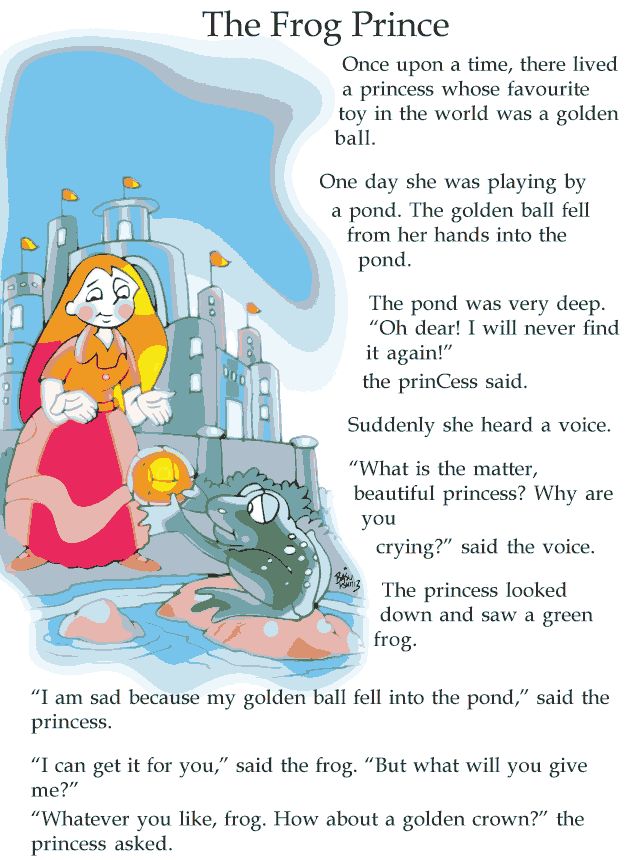
Another example of the fact that stories in English are often not easy to understand is O. Henry's story "The Dream". The piece starts like this:
Murray dreamed a dream.
Both psychology and science grope when they would explain to us the strange adventures of our immaterial selves when wandering in the realm of “Death's twin brother, Sleep”. This story will not attempt to be illuminative; it is no more than a record of Murray's dream. One of the most puzzling phases of that strange waking sleep is that dreams which seem to cover months or even years may take place within a few seconds or minutes.
Murray had a dream.
Both psychologists and scientists are lost in explanations of the strange adventures of our immaterial "I" when we wander in the realm of the "twin of death" - in the realm of sleep. This story does not claim to be an explanation, it is just a description of Murray's dream. One of the most confusing aspects of these strange dreams is that we think months or even years pass in dreams, but in reality only a couple of seconds or minutes.
One of the most confusing aspects of these strange dreams is that we think months or even years pass in dreams, but in reality only a couple of seconds or minutes.
In this article, we have analyzed small passages to show how effective it is to read stories in English. You can choose from your favorite author's collections or get to know the work of various writers through their stories: in the variety of works everyone will find what they like.
Interesting short stories in English with translation
Reading short stories in English is one of the most effective methods of learning a language. Interesting stories in English with translation help to expand vocabulary and improve grammar. It is also the best practice for practicing learned words and reinforcing the rules.
Here are the benefits of reading stories and stories in English:
- reading stories in English expands vocabulary, allows you to understand the specifics of using many idioms, colloquial phrases, artistic techniques;
- while working with stories in English, the ability to understand the main idea of what is written develops;
- reading stories in English allows you to see the practical application of grammatical structures;
- when reading stories in English, the reader has the opportunity to learn to understand the author's style.

Reading stories in English can significantly increase motivation for learning: understanding a text in a foreign language inspires further learning. When studying English, it is useful to read stories to test your knowledge and ability to understand and interpret foreign speech.
Quick page navigation
- How to work with stories
- A Good Lesson
- The Shoebox
- Hit the Floor!
- Will's experience at the airport
- Fortune and the man
- Wrong car
- A Magic Ring
Methodology for working with stories
The selected story should be read briefly for the first time: try to understand the general idea of what was read, not try to understand every word;
while reading the story in English for the second time, pay attention to interesting words and structures, the use of grammar;
interesting phrases and words from history can be written out in a separate notebook in order to be able to return to them in the future.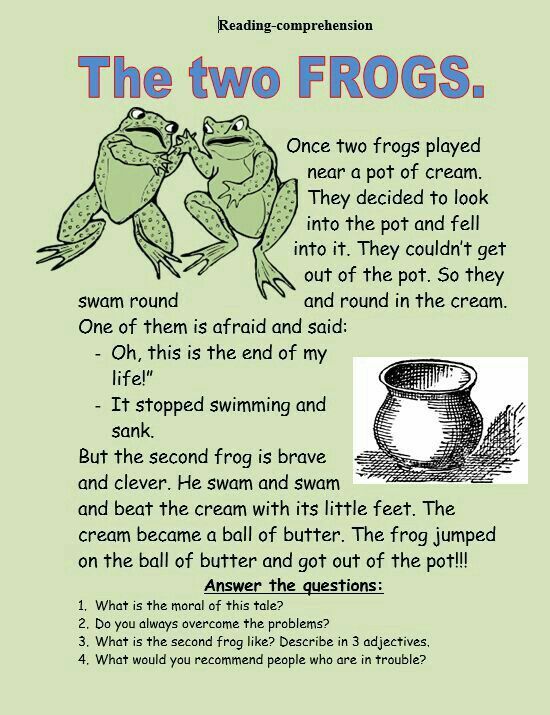
If you have difficulty understanding what you read or don't understand most of it, then most likely you lack theoretical knowledge. In this case, we recommend that you improve your level by taking a free English course from zero to a conversational level for busy people.
For beginners, stories in English with a simple plot and simple grammatical constructions are suitable. These can be stories, fairy tales, comic stories, simple stories and stories about animals, children, travel. We have prepared for you short but interesting stories in English with translation. But the translation is hidden so that you don't peek while reading. Try to understand on your own what the story is about, and only then open the translation.
A Good Lesson
Once a rich Englishwoman called Mrs Johnson decided to have a birthday party. She invited a lot of guests and a singer. The singer was poor, but he had a very good voice.
The singer got to Mrs Johnson's house at exactly six o'clock as he had been asked to do, but when he went in, he saw through a door that the dining-room was already full of guests, who were sitting round a big table in the middle of the room. The guests were eating, joking, laughing, and talking loudly. Mrs Johnson came out to him, and he thought she was going to ask him to join them, when she said, “We’re glad, sir, that you have come. You will be singing after dinner, I'll call you as soon as we're ready to listen to you. Now will you go into the kitchen and have dinner, too, please?”
The guests were eating, joking, laughing, and talking loudly. Mrs Johnson came out to him, and he thought she was going to ask him to join them, when she said, “We’re glad, sir, that you have come. You will be singing after dinner, I'll call you as soon as we're ready to listen to you. Now will you go into the kitchen and have dinner, too, please?”
The singer was very angry, but said nothing. At first he wanted to leave Mrs Johnson's house at once, but then he changed his mind and decided to stay and teach her and her rich guests a good lesson. When the singer went into the kitchen, the servants were having dinner, too. He joined them. After dinner, the singer thanked everybody and said, "Well, now I'm going to sing to you, my good friends." And he sang them some beautiful songs.
Soon Mrs Johnson called the singer.
"Well, sir, we're ready."
Ready? asked the singer. "What are you ready for?"
"To listen to you," said Mrs Johnson in an angry voice.
Listen to me? But I have already sung, and I'm afraid I shan't be able to sing any more tonight. "
"
"Where did you sing?"
"In the kitchen. I always sing for those I have dinner with."
TRANSLATION OF THE TEXT
One day a rich English woman named Mrs. Johnson decided to throw a birthday party. She invited many guests and a singer. The singer was poor, but he had a very good voice.
The singer arrived at Mrs. Johnson's house at exactly six o'clock, as he was asked, but when he entered, he saw through the door that the dining room was already full of guests who were sitting at a large table in the middle of the room. The guests ate, joked, laughed and talked loudly. Mrs. Johnson came out to him and he thought she was going to ask him to join them, as she said, “We are glad, sir, that you have come. You will sing after supper, I will call you as soon as we are ready to listen to you. Will you go to the kitchen now and have dinner too?”
The singer was very angry but didn't say anything. At first he wanted to leave Mrs. Johnson's house immediately, but then he changed his mind and decided to stay and teach her and her wealthy guests a good lesson. When the singer went to the kitchen, the servants were also having dinner. He joined them. After dinner, the singer thanked everyone and said: "Well, now I will sing to you, my good friends." And he sang some beautiful songs to them.
When the singer went to the kitchen, the servants were also having dinner. He joined them. After dinner, the singer thanked everyone and said: "Well, now I will sing to you, my good friends." And he sang some beautiful songs to them.
Soon Mrs. Johnson called the singer.
"Well, sir, we're ready."
"Ready?" asked the singer. "What are you ready for?"
"To listen to you," said Mrs. Johnson in an angry voice.
"Listen to me? But I've already sung and I'm afraid I won't be able to sing more tonight."
"Where did you sing?"
"In the kitchen. I always sing for those I dine with.”
The Shoebox
A man and woman had been married for more than 60 years. They had shared everything. They had talked about everything. They had kept no secrets from each other except that the little old woman had a shoebox in the top of her closet that she had cautioned her husband never to open or ask her about.
For all of these years, he had never thought about the box, but one day the little old woman got very sick and the doctor said she would not recover.
In trying to sort out their affairs, the little old man took down the shoebox and took it to his wife's bedside. She agreed that it was time that he should know what was in the box. When he opened it, he found two knitted dolls and a stack of money totaling $95,000.
He asked her about the contents.
‘When we were to be married,’ she said, ‘my grandmother told me the secret of a happy marriage was to never argue. She told me that if I ever got angry with you, I should just keep quiet and knit a doll.’
The little old man was so moved; he had to fight back tears. Only two precious dolls were in the box. She had only been angry with him two times in all those years of living and loving. He almost burst with happiness.
‘Honey,’ he said, ‘that explains the dolls, but what about all of this money?
Where did it come from?’
‘Oh,’ she said, ‘that’s the money I made from selling the dolls.’
TRANSLATION OF THE TEXT
A man and woman have been married for over 60 years. They shared everything. They talked about everything. They kept no secrets from each other, except that the old lady had a shoe box on her closet, which she warned her husband about never to open or ask about.
They shared everything. They talked about everything. They kept no secrets from each other, except that the old lady had a shoe box on her closet, which she warned her husband about never to open or ask about.
In all these years, he never thought about the box, but one day the old lady became very ill and the doctor said she would not recover.
Trying to sort out their affairs, the old man took off the shoebox and carried it to his wife's bed. She agreed that it was time for him to know what was in the box. Opening it, he found two knitted dolls and a wad of money totaling $95,000.
He asked her about the contents.
“When we were to get married,” she said, “my grandmother told me that the secret to a happy marriage is never to argue. She told me that if I ever get mad at you, I should just keep quiet and knit a doll.
The old man was so touched; he had to hold back his tears. There were only two exquisite dolls in the box. She was angry with him only twice in all these years of life and love. He almost burst with happiness.
He almost burst with happiness.
“Honey,” he said, “that explains the dolls, but what about all that money?
Where is this from?’
“Oh,” she said, “this is the money I made selling dolls.”
Hit the Floor! (Muzzle to the floor!)
Jenny and Robert Slater were on holiday in America. They were young and it was their first time away from home in England. They had a car and visited many famous and interesting places.
‘I want to see New York,’ Jenny said one morning. ‘Let’s go there.’
‘Mmm, I don’t know, love. Everybody says New York’s a dangerous place and there are a lot of very strange people there,’ her husband answered.
‘We’ll be careful,’ said Jenny. ‘Then we won’t have any problems.’
So they arrived in New York early in the evening and found a hotel. Later they went out and drove around the streets. They didn't have any problems. ‘See,’ Jenny said. ‘Nothing to be afraid of.’
They had dinner in a good restaurant and then went to a cinema. They arrived back at their hotel at midnight. Under the hotel was a garage so they drove into it and left the car. It was quite dark there and they couldn't see very well.
They arrived back at their hotel at midnight. Under the hotel was a garage so they drove into it and left the car. It was quite dark there and they couldn't see very well.
‘Where’s the lift?’ Jenny asked.
‘Over there, I think, near the door,’ Robert answered. ‘Come on, let’s go. I don’t like this dark place.’
Suddenly they saw a very tall young man with a big black dog. They were nervous and walked past him as fast as they could to the lift. The door of the lift opened and Jenny and Robert got in. Before the doors closed the man and the dog jumped in – three people and one big black dog in the lift.
‘On the floor, Girl!’ the tall man said. Jenny and Robert were afraid now, so they quickly got down on the floor. When the lift stopped at the next floor, they stood up, gave the man all their money and got out fast.
‘That man was a robber! Perhaps he had a gun… It’s dangerous here!’ Robert said. ‘We’re going to leave New York now!’
‘Yes, you’re right. ’ Jenny answered. ‘There are some dangerous people in New York.’
’ Jenny answered. ‘There are some dangerous people in New York.’
First thing next morning they took their room key to the desk and gave it to the woman.
‘There’s nothing to pay, Mr Slater,’ she said. ‘A tall young man with a nice dog came to the desk late last night and paid for your room. Oh, wait a minute – he left this for you, too.’ She gave Robert an envelope.
He opened it carefully and took out a letter. They read it together: ‘Here’s your money and I’m very sorry you were afraid in the lift last night. “Girl” is the name of my dog.’
TRANSLATION OF THE TEXT
Jenny and Robert Slater were on vacation in America. They were young and it was their first time away from home in England. They had a car and visited many famous and interesting places.
"I want to see New York," Jenny said one morning. ‘Let’s go there.’
‘Mmm, I don’t know, love. Everyone says that New York is a dangerous place and there are a lot of strange people there,” her husband replied.
"We'll be careful," Jenny said. "Then we won't have any problems."
So they arrived in New York early in the evening and found a hotel. Later they got out and drove through the streets. They didn't have any problems. "See," Jenny said. "Nothing to be afraid of."
They had dinner at a good restaurant and then went to the cinema. They returned to their hotel at midnight. There was a garage under the hotel, so they drove into it and left the car. It was quite dark in there and hard to see.
"Where is the elevator?" Jenny asked.
"There, I think, near the door," replied Robert. 'Let's go. I don't like this dark place.
Suddenly they saw a very tall young man with a large black dog. They were nervous and walked past him as fast as they could to the elevator. The elevator door opened and Jenny and Robert entered. Before the doors closed, a man and a dog ran in—three people and one big black dog in the elevator.
"On the floor, girl!" the tall man said.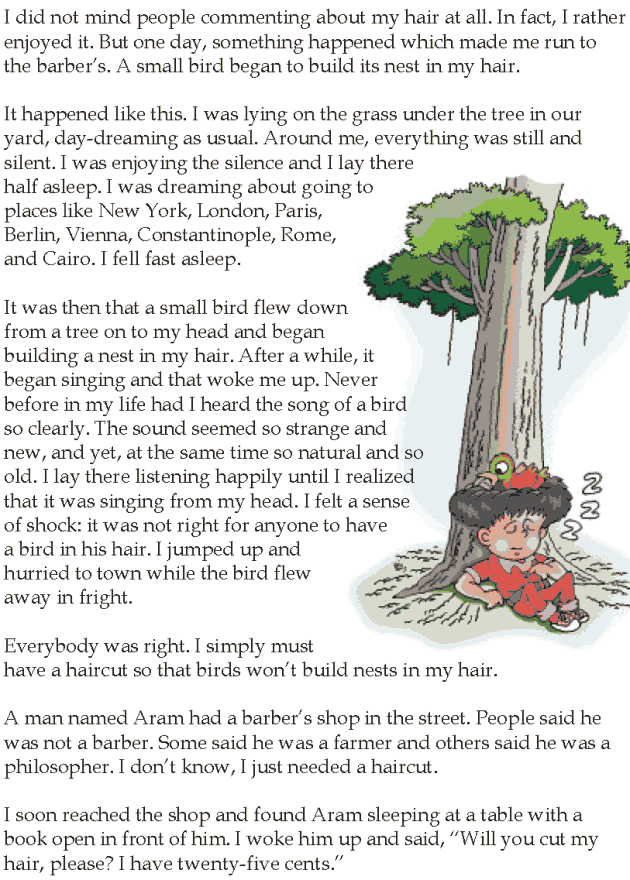 Jenny and Robert got scared so they quickly sank to the floor. When the elevator stopped at the next floor, they got up, gave the man all their money, and quickly exited.
Jenny and Robert got scared so they quickly sank to the floor. When the elevator stopped at the next floor, they got up, gave the man all their money, and quickly exited.
“That man was a robber! He might have had a gun... It's dangerous here!" Robert said. "We're leaving New York now!"
"Yes, you're right," Jenny replied. "There are dangerous people in New York."
The first thing they did the next morning was to take the key to their room and give it to the woman.
"Mr. Slater has nothing to pay," she said. "A tall young man with a handsome dog came to the counter last night and paid for your room." Oh, wait a minute - also he left it to you. She gave Robert an envelope.
He carefully opened it and took out the letter. They read together: “Here is your money, and I am very sorry that you got scared in the elevator last night. "Girl" is the name of my dog.
Will’s experience at the airport
After his return from Rome, Will couldn't find his luggage in the airport baggage area. He went to the lost luggage office and told the woman there that his bags hadn't shown up on the carousel.
He went to the lost luggage office and told the woman there that his bags hadn't shown up on the carousel.
She smiled and told him not to worry because they were trained professionals and he was in good hands.
Then she asked Will, “Has your plane arrived yet?”
TRANSLATION OF THE TEXT
After returning from Rome, Will couldn't find his luggage in the luggage compartment of the airport. He went to the lost and found office and told the woman who worked there that his bags never showed up on the carousel.
She smiled and told him not to worry because they were professionals and he was in good hands.
Then she asked, “Has your plane already arrived?”
Fortune and the man
One day a man was walking along the street. He carried an old bag in his hands. He was wondering why people who had so much money were never satisfied and always wanted more. “As to me,” he said, “if I had enough to eat, I should not ask for anything else. ”Just at this moment Fortune came down the street. She heard the man and stopped.
”Just at this moment Fortune came down the street. She heard the man and stopped.
“Listen,” she said, “I want to help you. Hold your bag, and I shall pour diamonds into it. But every diamond which falls on the ground will become dust. Do you understand?"
“Oh, yes, I understand,” said the man. He quickly opened his bag and stream of diamonds was poured into it. The bag began to grow heavy. Is that enough? asked Fortune. “Not yet.” The man's hand's began to tremble.
“You are the richest man in the world now.” Said Fortune.
“Just a few more, and a few more,” said the man. Another diamond was added and the bag slipped. All the diamonds fell on the ground and became dust.
Fortune disappeared, leaving the man in the street.
TRANSLATION OF THE TEXT
One day a man was walking down the street. In his hands was an old bag. He walked and thought: “Why are people who have a lot of money never satisfied and always want to have more money. ”
”
"As for me," he thought, if I only had enough to eat, I would not need anything more.
At that moment, Fate was passing by him. She heard the poor man and stopped.
"Listen," she said, "I want to help you. Give me your bag, I'll fill it with diamonds. But if even one diamond falls to the ground, the entire contents of the bag will turn to dust. Understand?
"Oh, of course, I understand," the poor man replied. He quickly opened his bag and the diamonds fell into his bag. The bag was getting heavy.
"Enough?" Fate asked.
"Not yet," the peasant replied, his hands trembling.
"You are the richest man in the world," said Fate.
"More! Some more!" said the poor man.
At this moment, another diamond fell into the overflowing bag.
The bag slipped out of the hands of the poor man and fell to the ground, and the diamonds turned into dust in the same instant.
Fate has disappeared, leaving the poor on the street.
Sir Arthur Conan Doyle
Everyone has heard of Sherlock Holmes. Everyone has read stories about Sherlock Holmes at one time or another. Sherlock Holmes was a famous detective. Actually, he was the most famous detective of all times. The author of the Sherlock Holmes stories was Sir Arthur Conan Doyle.
Everyone has read stories about Sherlock Holmes at one time or another. Sherlock Holmes was a famous detective. Actually, he was the most famous detective of all times. The author of the Sherlock Holmes stories was Sir Arthur Conan Doyle.
Once Sir Arthur arrived in Paris. He took a cab and asked the cabman to take him to the Ritz, the hotel where he was going to spend the night. When he received the fare he said:
“Thank you very much, Sir Arthur Conan Doyle.”
“How do you know who I am?” asked Sir Arthur. He was very much surprised.“Well, sir, I read in the newspaper yesterday that you were coming to Paris from the South of France. I also noticed that your hair was cut by a barber in the South of France. Your clothes and especially your hat told me that you were English. I put all the information together and quessed that you were Sir Arthur Conan Doyle.”
“That is wonderful,” said Sir Arthur.
“You could recognize me though you knew very few facts.”
“Besides,” added the cabman. Your name is on both of your travel bags. That also helped.”
Your name is on both of your travel bags. That also helped.”
So, the cabman played a good joke on Conan Doyle.
TEXT TRANSLATION
Everyone has heard of Sherlock Holmes. Everyone has read the Sherlock Holmes stories at one time or another. Sherlock Holmes was a famous detective. In fact, he was the most famous detective of all time.
Sir Arthur Conan Doyle was the author of the Sherlock Holmes stories. One day Sir Arthur arrived in Paris. He took a taxi and asked the taxi driver to take him to the Ritz, to the hotel where he was going to spend the night. The driver brought him to the hotel. When he got the fare he said
"Thank you very much, Sir Arthur Conan Doyle."
"How do you know who I am?" Sir Arthur asked. He was very surprised.
"Well, sir, I read in the paper yesterday that you were going to Paris from the south of France. I also noticed that you had your hair cut by a barber in the south of France.
Your clothes and especially your hat say you are English I put all these facts together and realized that you are Sir Arthur Conan Doyle.
"Wonderful," said Sir Arthur. "You were able to recognize me by knowing very few facts."
"Besides," the driver added, "Your name is on both of your travel bags. That helped too."
So the driver played a good joke on Conan Doyle.
A present from the son
Long ago there lived an old woman in England. She had a son who was a sailor. He went to different countries and always brought presents for his old mother.Once he went to China and brought some tea from that country.
At that time tea was very expensive and only rich people could buy and drink it. So the old woman was very happy to have such a nice present. But she didn't know what to do with it as she had never bought tea before. She thought it was a vegetable. She told her friends about her son's present and invited them to taste it with her. At last the day of the tea-party came. The woman called her guests to the dining-room and put a big dish of tea leaves on the table. The guests began to eat the leaves with salt just as they ate vegetables. Nobody liked it but didn't tell the woman about it and continued to eat the leaves. Some tome later the sailor came into the room. When he saw that all the guests were eating leaves, he smiled. Why are these leaves? Where is the tea?”
The guests began to eat the leaves with salt just as they ate vegetables. Nobody liked it but didn't tell the woman about it and continued to eat the leaves. Some tome later the sailor came into the room. When he saw that all the guests were eating leaves, he smiled. Why are these leaves? Where is the tea?”
“Here it is, my son,” the old woman said.
“And where is the water in which you have boiled the leaves?” asked the man laughing.
“I threw it away, of course,” answered the woman.
TRANSLATION OF THE TEXT
A long time ago there lived an old woman in England. She had a son who was a sailor. He traveled to different countries and always brought gifts for his old mother. Once he went to China and brought tea from that country. At that time, tea was very expensive, and only rich people could buy and drink such tea. Therefore, the old lady was very happy to have such a nice present. But she did not know what to do with such tea, since she had never bought it before.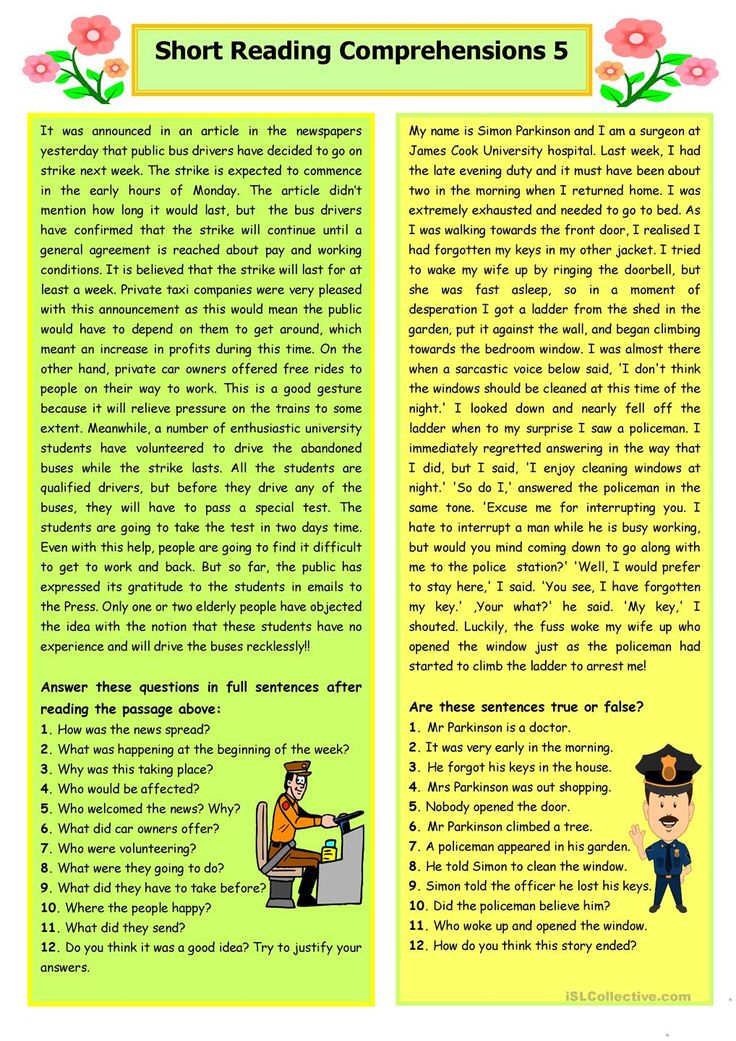 She thought it was a vegetable.
She thought it was a vegetable.
She told her friends about her son's gift and invited them to try the tea. Finally the day of the tea party arrived. The woman called her guests into the dining room and placed a large dish of tea leaves on the table. The guests began to eat the leaves with salt, as they did when they ate vegetables. No one liked it, but no one told the old woman about it, but continued to eat the leaves.
Some time later, the son entered the room.
When he saw that all the guests were eating the leaves, he smiled.
"What are you doing?
Why do you eat these leaves?
Where's the tea?
"Here he is, my son," said the old woman.
"Where is the water in which you boiled the leaves?" asked the son, laughing.
"Of course I poured it out," replied the mother.
Wrong car
It happened about a year ago. Our family bought a new car, and parents decided to celebrate it all together in the cafe. We enjoyed great food, had a conversation and a lot of fun. Dad was happy and he told us many jokes, everybody laughed more and more. We played the fools and couldn't stop. When it was time to go, Dad paid and left cafe to warm up the car, and Mom, her friend, my brother and I lingered in the cafe. When we went out, we realized that it was already dark outside - so we couldn't see well. And the second thing we railsed was the fact that nobody can remember exactly what our new car looks like! But Mom confidently went towards the black car, that was standing nearly. "Oh, Dad is waiting inside, it's ours. Come on".
Dad was happy and he told us many jokes, everybody laughed more and more. We played the fools and couldn't stop. When it was time to go, Dad paid and left cafe to warm up the car, and Mom, her friend, my brother and I lingered in the cafe. When we went out, we realized that it was already dark outside - so we couldn't see well. And the second thing we railsed was the fact that nobody can remember exactly what our new car looks like! But Mom confidently went towards the black car, that was standing nearly. "Oh, Dad is waiting inside, it's ours. Come on".
Just imagine: the company of four very noisy people, singing, talking loudly, laughing out, get into car. Mum turn to driver and exclaimed cheerfully: “Sasha, let’s go!”…The driver looked at us with eyes full of fear and cried out desperatly: “I am not Sasha, I am Egor!!! Who are you?!” Then we, absolutly confused and quiet, get in the right car, we told Dad about it. He couldn't drive for 5 minutes becouse of laughing.
TRANSLATION OF THE TEXT
This happened about a year ago.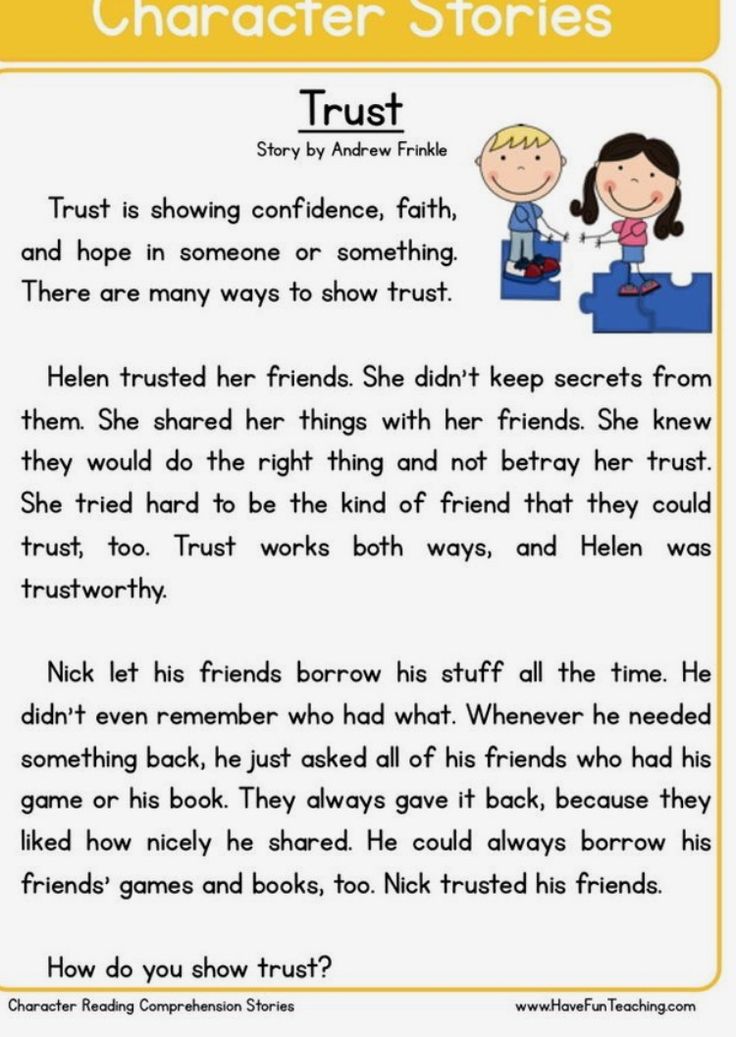 Our family bought a new car and parents decided to celebrate it in a cafe with the whole family. We ate delicious food, chatted and laughed. Dad was happy and told jokes one after another, everyone laughed non-stop. We played the fool and couldn't stop. When it was time to leave, my dad paid and went to start the car, but my mom, aunt, brother, and I were delayed. When we left, we realized that it was already dark, and in the dark we were not very good at orienting ourselves. The second thing we found was that no one remembers exactly what our new car looks like! But Mom walked confidently to the nearest black car. “So dad is already waiting for us, this is our car, let’s go.”
Our family bought a new car and parents decided to celebrate it in a cafe with the whole family. We ate delicious food, chatted and laughed. Dad was happy and told jokes one after another, everyone laughed non-stop. We played the fool and couldn't stop. When it was time to leave, my dad paid and went to start the car, but my mom, aunt, brother, and I were delayed. When we left, we realized that it was already dark, and in the dark we were not very good at orienting ourselves. The second thing we found was that no one remembers exactly what our new car looks like! But Mom walked confidently to the nearest black car. “So dad is already waiting for us, this is our car, let’s go.”
Just imagine: a company of four very noisy people, singing, talking loudly and laughing, tumble into a car. Mom turns to the driver and joyfully exclaims: “Sasha, let's go!” ... The driver looked at us with eyes full of horror and cried out desperately: “I'm not Sasha, I'm EGOR! Who are you all?!” And we, completely embarrassed and hushed, finally got into the right car and told dad about it.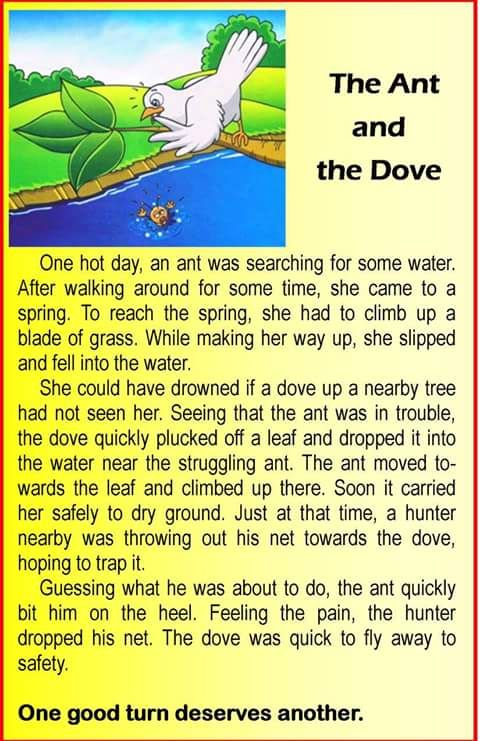 For another 5 minutes he could not move from his place from laughter.
For another 5 minutes he could not move from his place from laughter.
A Magic Ring
Once upon a time there lived a young farmer. He worked very hard but was very poor. One day when he was far from home in the forest, an old woman looking like a peasant came up to him and said, “I know you work very hard, and all for nothing. I will give you a magic ring! It will make you rich, and your work won't be in vain. When you turn the ring on your finger and say what you wish to have, you'll have it at once! But there is only one wish in the ring, so think carefully before you wish."
The astonished farmer took the ring given to him by the peasant woman, and went home. In the evening he came to a big city. There he went to a merchant and showed him the magic ring. When the merchant heard the astonishing story, he thought of a plan. He invited the farmer to stay in his house for the night. At night he came up to the sleeping peasant, carefully took the ring off the man's finger, and put on another ring, which looked exactly like the one he had taken off.
In the morning when the farmer had gone away, the merchant ran into his shop, shut the door, and said while turning the ring on his finger, "I wish to have a hundred thousand pieces of gold." And down they came, on his head, shoulders, and arms, like a rain of gold! The frightened merchant tried to get out of the shop, but in vain. In a few minutes he was dead.
When the farmer returned home, he showed the ring to his wife. "Take a look at this ring," he said. "It's a magic ring! It will make us happy.”
The astonished woman could hardly say a word "Let's try. Maybe the ring will bring us more land,” she said at last.
“We must be careful about our wish. Don't forget there's only one thing that we may ask for," he explained. “Let’s better work hard for another year, and we’ll have more land.”
So they worked as hard as they could and got enough money to buy the land they wished to have.
Then the farmer's wife thought of asking for a cow and a horse.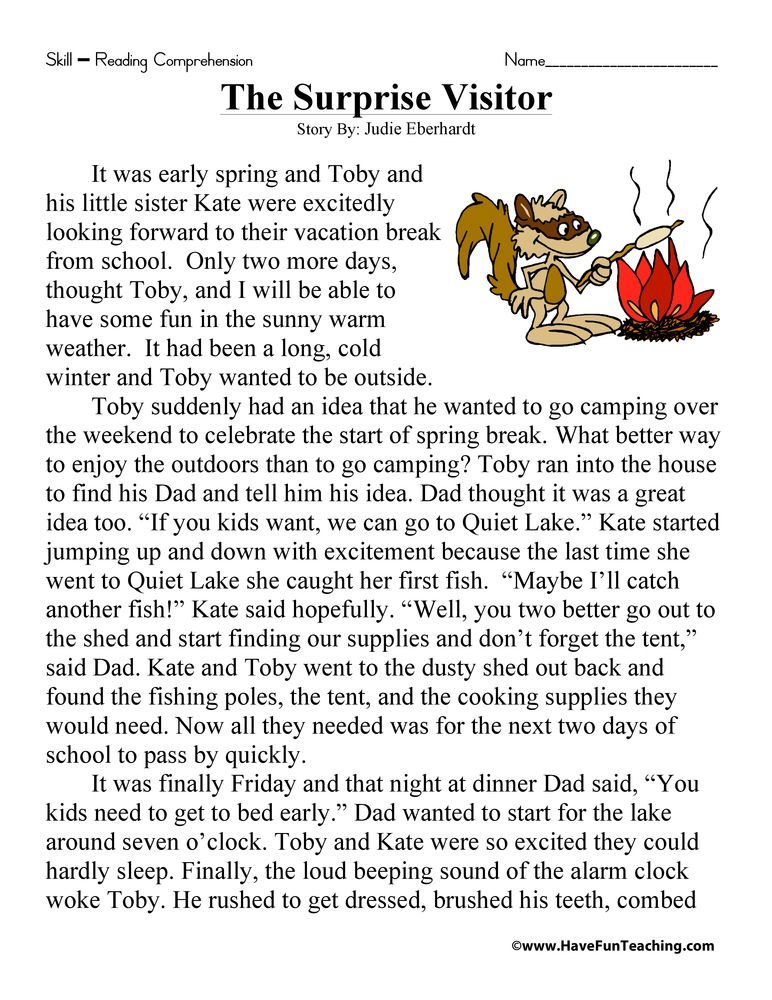 They discussed the matter more than once.
They discussed the matter more than once.
“My good wife,” said the farmer, “we shall get a horse and a cow without the ring.”
They went on working hard for a whole year and again bought the things they wished to have.
"What happy people we are!" said the farmer.
“I don’t understand you,” answered his wife angrily. "There's nothing in the world that we can't have, and still we spend days and nights working as hard as before, because you don't want to use your magic ring!"
Thirty, then forty years had gone by. The farmer and his wife had grown old. Their hair became as white as snow. They were happy and had everything they wanted. Their ring was still there. Although it was not a magic ring, it had made them happy. For you see, my dear friends, a poor thing in good hands is better than a fine thing in bad hands.
TRANSLATION OF THE TEXT
There once was a young farmer. He worked very hard, but was very poor. One day, when he was away from home in the forest, an elderly woman who looked like a peasant came up to him and said: “I know you work very hard, and everything is in vain. I will give you a magic ring! It will make you rich and your work will not be in vain. When you turn the ring on your finger and say what you want to have, you will get it right away! But there is only one wish in the ring, so think carefully before you wish.”
I will give you a magic ring! It will make you rich and your work will not be in vain. When you turn the ring on your finger and say what you want to have, you will get it right away! But there is only one wish in the ring, so think carefully before you wish.”
The surprised farmer took the ring given to him by the peasant woman and went home. In the evening he arrived in a big city. There he went to the merchant and showed him the magic ring. When the merchant heard the amazing story, he conceived a plan. He invited the farmer to stay at his house for the night. At night, he approached the sleeping peasant, carefully removed the ring from the man's finger, and put on another ring, which was similar to the one he had taken off.
In the morning, when the farmer left, the merchant ran to his shop, closed the door, and turning the ring on his finger, said, "I want to have one hundred thousand gold coins." And they rained down on his head, shoulders and arms like golden rain! The frightened merchant tried to get out of the store, but in vain.








